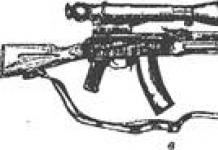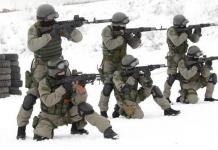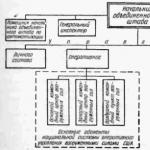The history of the Tomsk Communal Construction College goes back to the distant 1922, when by the decree of Sibprofrob it was founded on the basis of a vocational school. The school itself, which trained personnel in construction specialties, has existed since 1919 on the basis of the Royal Trade School, which, in turn, originates in 1883.
Until 1947, the Tomsk Communal Construction College remained the only educational institution in Siberia that had a purely construction profile, including an architectural and construction department. Professional technicians-architects, technicians-builders were trained here. The technical schools of Irkutsk, Krasnoyarsk, Omsk did not train specialists of these profiles.
In those years, not only the material foundation of the educational institution was laid, but also a powerful team of teachers and employees was created, traditions were formed. A great contribution to the formation of the technical school was made by the leaders who headed it at different stages of history: L.V. Mikhailov, V.I. Shegurov, V.N. Levin, G.I. Gorbenko, S.B. Pokrass.
Today it is one of the oldest technical schools in Siberia - a steadily developing modern educational institution. Student enrollment is increasing year by year. Currently, the technical school trains personnel in seven specialties. Moreover, market-oriented and technical specialties are added to the traditional specialties of the construction profile, requiring a serious material base, such as "Installation and operation of internal plumbing devices and ventilation", "Installation and operation of equipment and gas supply systems", "Assessment of the technical condition of industrial and civil buildings and structures ". The introduction of new specialties requires the creation of new classrooms and laboratories. Today, the complex of the municipal construction technical school includes educational and administrative buildings, training and production workshops, in which about 1.5 thousand students and trainees study. Branches of the technical school were opened in the city of Sharypovo, Krasnoyarsk Territory and in the city of Asino, Tomsk Region, which makes it possible for students to study at their place of residence.
To ensure a high level of teaching, work is underway to additionally attract highly qualified teaching staff. Today, 61 teachers work in the teaching staff. 15 teachers have the highest qualification category, 19 - the first qualification category, 2 - candidates of sciences. Among them are the honored teacher of the Russian Federation Lyudmila Iosifovna Yushchube, the excellent student of public education Galina Fedorovna Lavrova, the excellent student of secondary specialized education Valentina Iosifovna Kartashova, the honorary worker of secondary specialized education Vladimir Ivanovich Kholzunov.
The history of the Tomsk Communal Construction College goes back to the distant 1922, when by the decree of Sibprofrob it was founded on the basis of a vocational school. The school itself, which trained personnel in construction specialties, has existed since 1919 on the basis of the Royal Trade School, which, in turn, originates in 1883.
Until 1947, the Tomsk Communal Construction College remained the only educational institution in Siberia that had a purely construction profile, including an architectural and construction department. Professional technicians-architects, technicians-builders were trained here. The technical schools of Irkutsk, Krasnoyarsk, Omsk did not train specialists of these profiles.
In those years, not only the material foundation of the educational institution was laid, but also a powerful team of teachers and employees was created, traditions were formed. A great contribution to the formation of the technical school was made by the leaders who headed it at different stages of history: L.V. Mikhailov, V.I. Shegurov, V.N. Levin, G.I. Gorbenko, S.B. Pokrass.
Today it is one of the oldest technical schools in Siberia - a steadily developing modern educational institution. Student enrollment is increasing year by year. Currently, the technical school trains personnel in seven specialties. Moreover, market-oriented and technical specialties are added to the traditional specialties of the construction profile, requiring a serious material base, such as "Installation and operation of internal plumbing devices and ventilation", "Installation and operation of equipment and gas supply systems", "Assessment of the technical condition of industrial and civil buildings and structures ". The introduction of new specialties requires the creation of new classrooms and laboratories. Today, the complex of the municipal construction technical school includes educational and administrative buildings, training and production workshops, in which about 1.5 thousand students and trainees study. Branches of the technical school were opened in the city of Sharypovo, Krasnoyarsk Territory and in the city of Asino, Tomsk Region, which makes it possible for students to study at their place of residence.
To ensure a high level of teaching, work is underway to additionally attract highly qualified teaching staff. Today, 61 teachers work in the teaching staff. 15 teachers have the highest qualification category, 19 - the first qualification category, 2 - candidates of sciences. Among them are the honored teacher of the Russian Federation Lyudmila Iosifovna Yushchube, the excellent student of public education Galina Fedorovna Lavrova, the excellent student of secondary specialized education Valentina Iosifovna Kartashova, the honorary worker of secondary specialized education Vladimir Ivanovich Kholzunov.
Tomsk Municipal Construction College- regional institution of secondary special technical vocational education (college)
- Full official name as of 2014: Tomsk Regional State Budgetary Educational Institution of Secondary Vocational Education ""
- Short name: TCST, TK-ST or OGBOU SPO "Tomsk Communal Construction College"
Story
From the second half of the 18th century, there were garrison schools, in which soldiers' children were taught the trade - locksmith, weapons, carpentry. The level of literacy was not required. In the first half of the 19th century, in these schools, in addition to knowledge of the craft, they began to give the basics of elementary literacy. In accordance with the trends and military-economic tasks of the powers, in the middle of the 19th century they began to be transformed into elementary schools for boys (older teenagers) with the obligatory acquisition of literacy in addition to a craft or profession. Industrial capitalist development required, in addition to them, the creation of vocational and commercial schools of the second stage (category) with a higher level of both technical and general literacy of the graduate. After all, most of them became senior shift workers, foremen, foremen, assistant foremen of sections of factories and enterprises that were being created. Vocational schools used the experience, teachers, and often the educational base of the former primary men's schools.
It is generally accepted that the Tomsk Communal Construction College comes from Tomsk Royal vocational school(originally I category). This school was designed to provide competent workers, technicians and tenants for new construction and entrepreneurial projects of the Tomsk merchants: it was necessary to build and equip objects of the era of rapid industrial development of Siberia. After all, it was Tomsk merchants-industrialists who then developed not only Tomsk, but also the county towns of the Tomsk province, spread mainly along the Tom and Obi from Altai to Narym.
grand opening ceremony Royal Vocational School No. 1 took place on March 10 () 1883. For this school, the honorary citizen of the city, the merchant Evgraf Korolev and his wife Evpraksiniya, donated a large brick building newly built by him, then valued at 35 thousand royal rubles in gold, donations of donated capital (cash), furniture, educational equipment, books and even educational student supplies (including notebooks, fountain pens, cookware etc.) - another 25 thousand rubles. The delighted city decided to give the new educational institution the name of philanthropists-philanthropists - Tomsk Vocational School of Evpraksinia and Evrgaf Korolev. In honor of such generosity, the city also named the main street in the nearby city district of Zaistok after Korolev: Korolyovskaya street. In Soviet times, the street from the bourgeois ideology of the name will be renamed revolutionary-proletarian, now it is Gorkogo Street. The first building of the school was located until the 1950s. on the site of the modern building "pr. Lenin, 74 "(aka:" Belents street, 10 "). When it was necessary to expand the educational and production base of the school by the family of the merchant E.I. Korolev, wooden two-story buildings were built, which were demolished in the 1950s. during the laying of the complex of the modern hotel "Siberia" ( Lenin Ave., 91, he is - per. Plekhanov, 2).
Charter 1st Royal vocational school was approved on January 25, 1883. The school building was located on Pochtamtskaya street(now - Lenin Ave.). The educational institution consisted of four classes. Classes were divided into theoretical and practical. Students spent most of their hours in the workshops. The main crafts were studied: plumbing and carpenter Noah. The plumbing department was in high demand, there were even competitions when recruiting students. Tuition was not charged, because the school accepted children mainly from low-income families who did not have the means to purchase books and writing materials. Books, notebooks, cookware, pens and pencils for the period of study were issued by the administration of the school.
Soon, Evgraf Korolev takes an active part in the creation of another one in Tomsk, Second vocational school, for which he donates his same building worth 35 thousand rubles, located on Bulvarnaya street. The vocational school, created first, by the beginning of the 20th century will no longer have the status of private, a state. The change in status made it possible to raise the level of the school (already by the II category, to the level of the secondary school), the material base of the educational institution increased several times. The city and the government endowed it with 2 more nearby stone buildings and one two-story wooden one. In such a new type of complex of 4 buildings and in fact in the status of a completely new educational institution Tomsk Vocational School No. 1 It was solemnly opened on September 14, 1896.
At the same time (1896), through the efforts and initiative of the honorable citizens of Tomsk, two more educational institutions of the secondary school level were created in the city: in buildings Lane Teckovsky(now - Cooperative) Nos. 11 and 13 - state Tomsk Alekseevsky real school and non-state Second real school on Novo-Sobornaya Square (now the building of the State Statistics Committee). The history of the TKST will intersect with one of them.
Buildings and material base of the former Vocational School No. 1 on Pochtamtskaya Street in the late autumn of 1921, it was transferred to the newly formed Tomsk Construction College, which was finally created by the decree of SibProfrObra dated April 22, 1922.
The emergence in the country of construction technical schools and institutes with road construction and bridge construction specializations was largely predetermined by the requirements of the time, the need to overcome the consequences Civil war and destruction. The demand for specialists for the construction industry has increased significantly in 10 years due to the beginning of the era industrialization.
In the spring of 1922, the technical school consisted of 2 preparatory departments - “civil engineering” and “hydro-reclamation construction”. In the late autumn of the 1922-1923 academic year, the first basic educational department was opened - "architectural and construction". The creation of this specialty was facilitated by the presence in those years of the same name, Faculty of Architecture and Civil Engineering in (now TPU), who helped with teaching staff.
In the 1924-1925 academic year, the technical school had a full department architectural specialty as part of 3 courses and the department of road construction specialty as part of the first and second courses. That year, financial difficulties arose with the opening of the 3rd course of the road department. However, the very next year, the 3rd year of the Stroytekhnikum was overstaffed: recently in Tomsk, Siberian Railway Construction College, some of whose students were transferred to TST.
In 1928, the TST was transferred to the buildings of the former Tomsk Alekseevsky Real School - houses No. 13 (see the picture on the right) and No. 11 along Kooperativny Lane, Nos. 11 and 13). Now the building number 11 has been lost, and the building “per. Cooperative, 13 ", now better known as" st. R. Luxembourg, 8".
In 1925 here in Tomsk Construction College(building on lane Cooperative, 11), as well as in Omsk om industrial college new departments appeared - road-bridge specialization.
In 1928, in the context of the concentration of the construction industry of the Siberian economy in the system of the emerging Gulag, the technical school was transferred to the jurisdiction of a paramilitary department, to the structure People's Commissariat of Internal Affairs of the USSR(territorial body of the NKVD Siberian region): Tomsk Construction College of the People's Commissariat of Internal Affairs of the RSFSR.
In 1930, on the basis of the road and bridge department Tomsk Construction College, as well as a similar department relocated to Tomsk Omsk Industrial College, a new independent Tomsk technical school was created, Tomsk road technical school of the West Siberian road transport department of the territorial body NKVD USSR (TDT ZapSibDorTrans NKVD), designed to train specialists in the construction and operation of bridges and highways. In a year, TDT will be reorganized, it will become Tomsk road technical school which still exists today. Thus Stroytekhnikum was squeezed in the building of the street. R. Luxembourg, 8 (aka - cooperative lane, 13), and the building along the lane. Cooperative, 11 became Road technical school. The city was urgently looking for an opportunity to relocate to the spacious premises of the Dortekhnikum, and the administration of the Stroytekhnikum asked the authorities to give it a building on the lane for the educational process. Cooperative, 11.
Despite the particularly hard work in the most difficult material conditions, the construction technical school demonstrated high quality indicators of educational and practical training of students, received a proper and good assessment from the inspection commission appointed for a wide and comprehensive survey of the Construction College .
Tomsk Construction College continued to operate as part of two of its training departments. In this form, in 1930, the TST was reorganized into Tomsk Communal Construction College (first formation). From the militarized system of the NKVD, the new TKST was transferred to the jurisdiction of the People's Commissariat of Public Utilities of the RSFSR.
In 1939, in order to strengthen the material base of the educational institution, by the decision of the city executive committee, the technical school was transferred to the Epiphany Church (which was on the Market Square) plundered by the movement of "militant atheists-Bolsheviks". However, the difficult financial situation of the TKST did not even allow to begin the conversion of the walls of the former temple into an educational building. After the start Great Patriotic War the building will be transferred to accommodate the Moscow plant of rubber products and footwear "Red Bogatyr".
Despite the departmental affiliation to NKVD system, in the 1930s. a wave of the all-Union campaign took place in the technical school mass Stalinist repressions. Then many students were arrested and repressed, as well as a number of teachers. So, in particular, in 1933, Boris Rafailovich Popov, head teacher of the technical school, was arrested and imprisoned, later recognized as innocently convicted. On August 14, 1936, the deputy director of the technical school, non-party Viktor Dmitrievich Varygin, was arrested. Was imprisoned for several years Gulag e, and then, in 1956, the USSR prosecutor's office found that he had become an innocent victim of mass repressions and he was fully acquitted and rehabilitated. On July 11, 1935, the head of the economic department of the technical school, Ivan Mikhailovich Poteryaev, who was rehabilitated in 1956, was also repressed.
When did it start The Great Patriotic War The deprivation of a harsh time also affected the technical school. Some of the students went to the front. In the context of the evacuation to Tomsk of enterprises and institutions from the western regions of the USSR, in 1942, the TST was still squeezed in training areas: the training base was relocated from the building on the street. R. Luxembourg, 8 to your hostel at st. Peasant, 11(now st. Shishkova, 11).
Since the 1930s the management of the technical school asked the administrative bodies of the Tomsk district, the Tomsk region for funds and the possibility of building a new building sufficient for the technical school. In the 1970s the efforts of the director of the technical school S.F. Pokrass were crowned with success, his initiative was supported by the head of the Tomsk region, the first secretary of the Tomsk OK CPSU E.K. Ligachev. Moscow gave permission for the construction of a complex of buildings for an educational institution on the territory of the Kashtak-II microdistrict being created in Tomsk. The building will not be built immediately; the complex will accept students only in the late 1990s.
In 1982, from the jurisdiction Ministry of Komkhoz of the RSFSR technical school is resubordinated Ministry of Housing and Communal Services of the RSFSR / RF. Since 1996 - run by Gosstroy of the Russian Federation. Since 2011, the technical school has been under the regional jurisdiction, becoming OGBOU in the system of the Department of SPO of the Administration of the Tomsk Region.
The technical school absorbed the history of the following Tomsk secondary specialized educational institutions of the 20th century:
- Tomsk Royal vocational school, 1883-1919;
- Construction Vocational School(SPTSh), 1919-1921-(1930) (after 1921, STPSh developed separately and now its successor is the technical school " TomInTech»);
- Tomsk Construction College(TST), 1921-1930;
- Construction Department, Tomsk Railway Construction College(TSZhDT), who was in Tomsk in 1921-1924;
- Tomsk Communal Construction College first formation, 1930-1943;
- Tomsk Power Engineering College, 1943-1946;
- second formation, from 1946 to the present.
The departments of the technical school became the basis of the following Tomsk secondary specialized educational institutions of the 20th century:
- Construction Vocational School(SPTSh), since 1922 it has been developing separately and now its successor is the technical school " TomInTech»;
- Tomsk road technical school(TDT), separated from the TST and the road department of the Omsk Industrial College since 1930, now it is " Tomsk Automobile and Road Technical School».
College today
In the years of the twentieth century, not only the material foundation of the educational institution was laid, but also a powerful team of teachers and employees was created, traditions were formed. A great contribution to the formation of the technical school was made by the leaders who headed it at different stages of history: L.V. Mikhailov, V.I. Shegurov, V.N. Levin, G.I. Gorbenko, S.B. Pokrass. TKST trained professional technicians-architects, technicians-builders. technical schools Irkutsk a, Krasnoyarsk a, Omsk and specialists of these profiles were not trained.
Today it is one of the oldest technical schools in Siberia, but at the same time it is a steadily developing modern educational institution. The enrollment of students is increasing from year to year. Currently, the technical school trains personnel in seven specialties. Moreover, market-oriented and technical specialties are added to the traditional specialties of the construction profile, requiring a serious material base, such as “Installation and operation of internal plumbing devices and ventilation”, “Installation and operation of equipment and gas supply systems”, “Assessment of the technical condition of industrial and civil buildings and structures ". The introduction of new specialties requires the creation of new classrooms and laboratories. Today, the complex of the municipal construction technical school includes educational and administrative buildings, training and production workshops, in which about 1.5 thousand students and trainees study.
There is a branch of the technical school in the city Sharypovo Krasnoyarsk Territory, in the town asino Tomsk region opened a representative office of the TKST. This makes it possible for students to study at their place of residence.
To ensure a high level of teaching, work is underway to additionally attract highly qualified teaching staff. In 2012, 61 teachers worked in the teaching staff, of which 15 teachers with the highest qualification category, 19 with the first qualification category, 2 are candidates of technical sciences. Among them are the honored teacher of the Russian Federation Lyudmila Iosifovna Yushchube, the excellent student of public education Galina Fedorovna Lavrova, the excellent student of secondary specialized education Valentina Iosifovna Kartashova, the honorary worker of secondary specialized education Vladimir Ivanovich Kholzunov.
Founded over 130 years ago and operating as a construction school for over 90 years, the modern technical school preserves and enhances its glorious traditions and strives for new successes and achievements. In the context of the Russian reform of 2013 to transform primary and secondary vocational education institutions, as well as in order to improve the training of specialists with access to undergraduate, the technical school continues to search for new methods of work, fits into the new structure of staffing for the needs of Tomsk construction and industrial construction enterprises.
Learning Opportunities
The Tomsk Municipal Construction Technical School invites students of grades 9-11, as well as working youth, to study in the following specialties:
- Specialty "Architecture", qualification "architect"
- on the basis of 9 classes - 3 years 10 months (for a fee).
- Specialty "Construction and operation of buildings and structures", qualification "technician"
- on the basis of 11 classes - 2 years 10 months;
- distance learning - 3 years 10 months.
- Specialty "Installation and operation of equipment and gas supply systems", qualification "technician"
- on the basis of 9 classes - 3 years 10 months;
- Specialty "Heat supply and heat engineering equipment", qualification - "heat engineer"
- on the basis of 11 classes - 2 years 10 months (for a fee);
- on the basis of 9 classes - 3 years 10 months;
- distance learning - 3 years 10 months (for a fee).
- Specialty "Production of non-metallic building products and structures", qualification "technician"
- on the basis of 11 classes - 2 years 10 months (for a fee);
- on the basis of 9 classes - 3 years 10 months;
- distance learning - 3 years 10 months.
- Specialty "Installation and operation of internal plumbing devices, air conditioning and ventilation", qualification "technician"
- on the basis of 11 classes - 2 years 10 months (for a fee);
- distance learning - 3 years 10 months (for a fee).
- Specialty "Water supply and sanitation", qualification "technician"
- on the basis of 11 classes - 2 years 10 months (for a fee);
- on the basis of 9 classes - 3 years 10 months (for a fee);
- distance learning - 3 years 10 months (for a fee).
Today it is one of the oldest technical schools in Siberia - a steadily developing modern educational institution. Student enrollment is increasing year by year. Currently, the technical school trains personnel in seven specialties. Moreover, market-oriented and technical ones are added to the traditional specialties of the construction profile, requiring a serious material base, such as `Installation and operation of internal plumbing devices and ventilation`, `Installation and operation of equipment and gas supply systems`, `Assessment of the technical condition of industrial and civil buildings and structures `. The introduction of new specialties requires the creation of new classrooms and laboratories. Today, the complex of the municipal construction technical school includes educational and administrative buildings, training and production workshops, in which about 1.5 thousand students and trainees study. Branches of the technical school were opened in the city of Sharypovo, Krasnoyarsk Territory and in the city of Asino, Tomsk Region.
College majors
Architecture
- Architect, full-time, based on 11 classes, 2 years 10 months, budget: yes, for a fee: yes
- Architect, full-time, based on 9 classes, 3 years 10 months, budget: yes, for a fee: yes
- Architect, full-time, based on 11 classes, 3 years 10 months, budget: yes, for a fee: yes
- Architect, full-time, based on 9 classes, 4 years 10 months, budget: yes, for a fee: yes
Installation and operation of equipment and gas supply systems
Construction and operation of buildings and structures
- Technician, full-time, on the basis of 11 classes, 2 years 10 months, budget: yes, for a fee: yes
- Technician, full-time, based on 9 classes, 3 years 10 months, budget: yes, for a fee: yes
- Senior technician, full-time, on the basis of 11 classes, 3 years 10 months, budget: yes, for a fee: yes
- Senior technician, full-time, on the basis of 9 classes, 4 years 10 months, budget: yes, for a fee: yes
Heat supply and heat engineering equipment
- Heating engineer, full-time, on the basis of 11 classes, 2 years 10 months, budget: yes, for a fee: yes
- Heating engineer, full-time, on the basis of 9 classes, 3 years 10 months, budget: yes, for a fee: yes
- Senior heating engineer, full-time, on the basis of 11 classes, 3 years 10 months, budget: yes, for a fee: yes
- Senior heating engineer, full-time, on the basis of 9 classes, 4 years 10 months, budget: yes, for a fee: yes
Water supply and sanitation
- Technician, full-time, on the basis of 11 classes, 2 years 10 months, budget: yes, for a fee: yes
- Technician, full-time, based on 9 classes, 3 years 10 months, budget: yes, for a fee: yes
- Senior technician, full-time, on the basis of 11 classes, 3 years 10 months, budget: yes, for a fee: yes
- Senior technician, full-time, on the basis of 9 classes, 4 years 10 months, budget: yes, for a fee: yes
In one of the highlighted words below, an error was made in the formation of the word form
Exercise 1 of 5hot fritters
put on a hat
Program EDITORS
WILL COME ON TIME
Check NextChoose the word that has the letter E in place of the gap
Exercise 2 out of 5honor
bow.. to bow
unobtrusive .. out
glossy..vy
Check NextIndicate the word in which the letter I is written in place of the gap
Exercise 3 out of 5disturb..sh
shake..sh
captivating..my
noticed..nny
Check Next

















